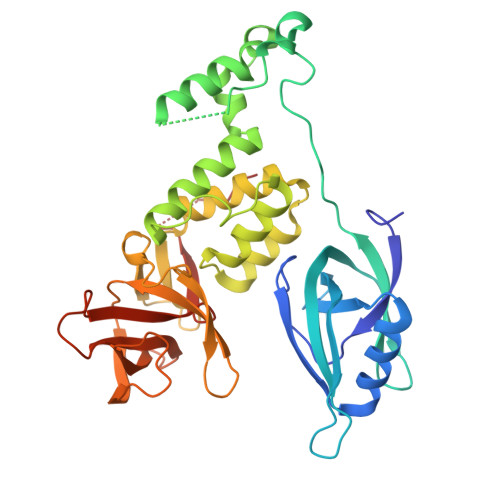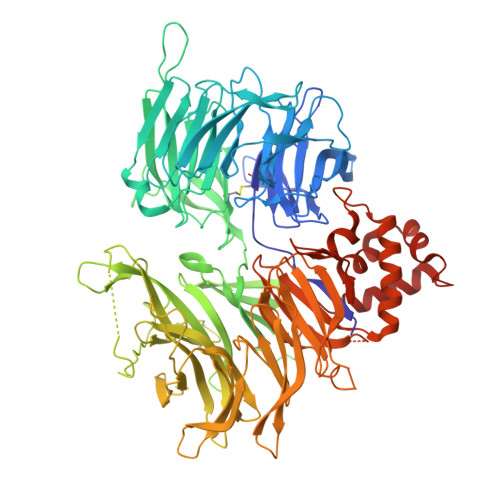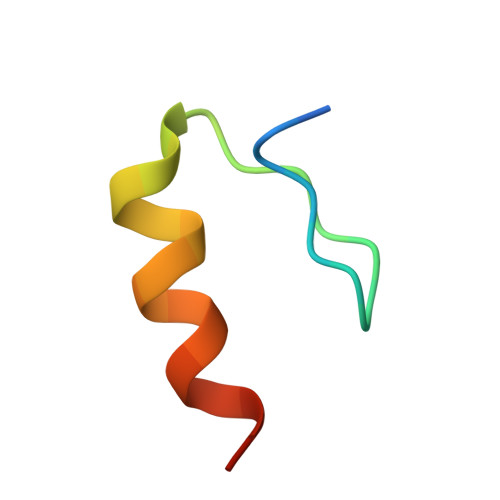Discovery and Optimization of First-in-Class Molecular Glue Degraders of the WIZ Transcription Factor for Fetal Hemoglobin Induction to Treat Sickle Cell Disease.
Kerrigan, J.R., Thomsen, N.M., Cernijenko, A., Kochanek, S.E., Dewhurst, J., O'Brien, G., Ware, N.F., Sanchez, C.C., Manning, J.R., Ma, X., Ornelas, E., Savage, N.A., Partridge, J.R., Patterson, A.W., Lam, P., Dales, N.A., Bonazzi, S., Borikar, S., Hinman, A.E., Ting, P.Y.(2024) J Med Chem 67: 20682-20694
- PubMed: 39541509
- DOI: https://doi.org/10.1021/acs.jmedchem.4c02251
- Primary Citation of Related Structures:
9DJT, 9DJX - PubMed Abstract:
Sickle cell disease (SCD) is a prevalent, life-threatening condition with few treatment options, attributed to a heritable mutation in ¦Â-hemoglobin. Therapeutic induction of fetal hemoglobin (HbF) with small molecules has been pursued as a treatment to ameliorate many disease complications but with limited success. Herein, we report the discovery of 10 , a novel, potent, and selective molecular glue degrader of the transcription factor WIZ that robustly induces HbF expression as a potential treatment for SCD. 10 was optimized from a phenotypic screening hit utilizing insights from X-ray crystallography and computational modeling to improve potency, selectivity and in vivo exposure. In an hNBSGW mouse xenograft model, 10 demonstrated robust WIZ degradation and HbF induction. These results highlight the potential of WIZ degraders as a promising therapy for sickle cell disease.
Organizational Affiliation:
Novartis Biomedical Research, 181 Massachusetts Avenue, Cambridge, Massachusetts 02139, United States.





















